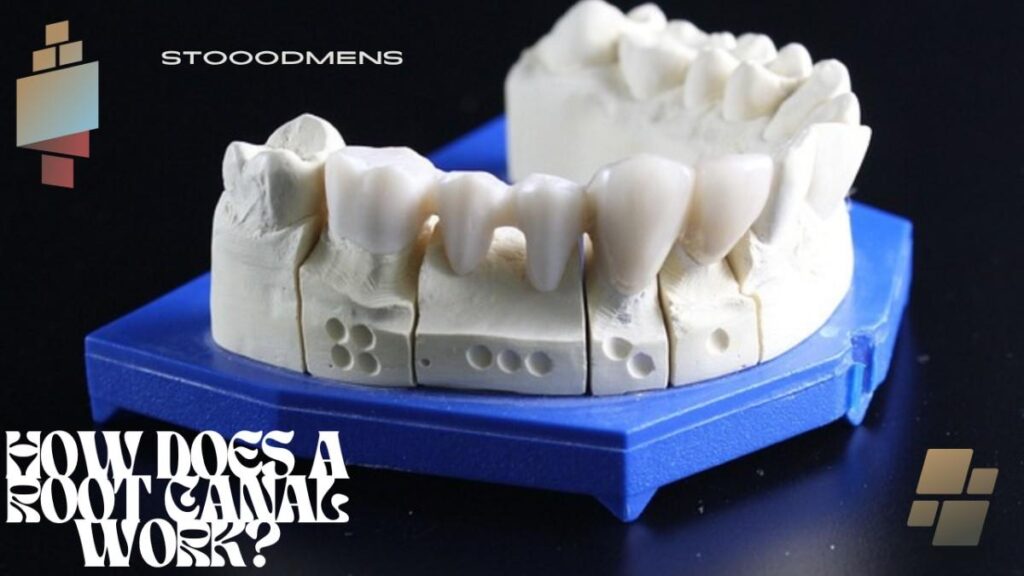
Hearing the term “root canal” could likely make you frightened. But did you understand it’s one of the first-class methods to keep a tooth and prevent aches?
Thanks to fashionable dental care, root canals aren’t as horrifying as they used to be. They are very crucial for retaining your herbal tooth healthy and running for years yet to come.
If your dentist says you want a root canal, or in case you’re certainly curious about it, it’s beneficial to understand why it is performed. This guide will explain why root canals are important and the way they help restore your tooth.
What is a Root Canal?
A root canal is a dental approach used to prevent contamination inside your tooth, in a thing known as the pulp. The pulp is the tender tissue within the middle of the tooth that carries nerves and blood vessels.
The contamination generally happens because of a deep hole area, a cracked tooth, or harm. Once the infection reaches the roots of your teeth, it can cause quite some pain, swelling, and even an abscess if now not handled.
The fundamental intention of a root canal is to ease out the contamination, save you the pain, and shop the tooth. Instead of pulling out the enamel, a root canal helps you to preserve it and retain the use of it typically.
What is the Purpose of a Root Canal?
The purpose of a root canal is easy: it saves your teeth whilst removing the contamination and aches. Here’s why it’s wished:
1. Saving Your Natural Teeth
Your teeth are critical for chewing, speaking, and preserving your jaw in line. When a tooth is wrongly inflamed, a root canal can help stop it instead of having to pull it out.
Keeping your natural tooth is higher because losing teeth can cause trouble. Like teeth shifting, problem chewing, and wanting high-priced treatments like implants or bridges.
2. Stopping the Infection
The pulp internal to your tooth enables it to grow, but once the enamel is completely developed, it may survive without the pulp. If the pulp is infected, microorganisms can spread in your gums, bones, or even other components of your frame.
A root canal gets rid of the infected pulp, cleans the tooth, and seals it so no greater microorganism can get in. This stops the infection from spreading and inflicting extra extreme issues like abscesses.
3. Alleviating Pain and Discomfort
A not-unusual false impression approximately root canals is they’re painful. The method is designed to alleviate aches as a result of infected teeth. When the pulp inside the teeth becomes infected, it may cause excruciating pain, mainly while chewing or exposure to hot or cold stimuli.
This soreness is a sign that the infection has spread deep into the tooth and calls for immediate attention.
A root canal gets rid of the supply of the contamination and, consequently, the pain. Thanks to modern anesthesia and techniques, the system itself is nearly painless. In truth, maximum sufferers sense a giant reduction in pain as soon as the infected pulp is eliminated.
4. Preventing Tooth Loss and the Need for Extensive Restorations
One of the largest advantages of a root canal is that it prevents the desire for tooth extraction, which may result in a domino effect of dental troubles. When a tooth is out of place, the final teeth can shift, inflicting misalignment and chunk troubles.
Additionally, tooth loss can bring about bone resorption in the jaw, resulting in a sunken facial appearance through the years.
A root canal preserves the tooth’s shape, allowing you to hold your smile’s look and capability. This, in turn, saves you from needing greater good-sized and high-priced restorative work, along with dental implants or bridges.
When is a root canal essential?
Dentists will normally advocate a root canal while the infection has penetrated the teeth’s roots. It may be decided through X-rays or based totally on signs and symptoms and signs. Here are a few not-unusual indicators that a root canal may be vital:
- Severe toothache pain: Especially while biting or chewing, an ache that doesn’t subside is usually a sign that the pulp is infected.
- Prolonged sensitivity: Sensitivity to hot and bloodless that lingers lengthy after the supply of temperature has been eliminated can indicate an issue with the teeth’s nerve.
- Swelling or tenderness: Swollen gums or tenderness around the affected tooth are red flags for infection.
- Discoloration: A darkened tooth may additionally signal internal damage or contamination.
- Abscess formation: Pus-stuffed abscesses close to the tooth root are a positive signal of a deep infection requiring instant interest.
How Does a Root Canal Work?

To recognize how a root canal achieves its reason, it’s beneficial to know the step-by-step process:
- Numbing the Area: The dentist starts by way of administering nearby anesthesia to make sure you don’t feel any pain during the system.
- Creating an Access Opening: A small opening is made in the crown of the tooth to attain the pulp chamber.
- Removing the Infected Pulp: Using specialized devices, the dentist cautiously gets rid of the infected pulp, microorganisms, and debris from the teeth.
- Cleaning and Shaping the Canals: Once the pulp is removed, the internal of the teeth is very well wiped easily, and the canals are fashioned to prepare them for filling.
- Sealing the Tooth: After cleaning, the canals are full of a biocompatible cloth (commonly gutta-percha), and the access to the hole is sealed to save you from re-infection.
- Restoring the Tooth: Finally, the teeth are capped with a crown or filling to repair its full capability and appearance.
Post-Procedure Care: Ensuring Long-Term Success
After a root canal, proper care is vital to make certain the teeth remain wholesome and free from future infections. Following your dentist’s instructions and preserving appropriate oral hygiene will assist the teeth in closing for decades.
- Brush and floss often.
- Avoid chewing on hard meals that might harm the crown.
- Attend an ordinary dental test to display the dealt with teeth.
Conclusion: Why Root Canals are Essential for Dental Health
The cause of a root canal is clear—it’s a lifesaver to your teeth. By disposing of inflammation, relieving pain, and keeping the natural shape of the teeth, root canals play an essential role in retaining long-term oral fitness. With present-day upgrades in dentistry, the method is now faster, much less invasive, and almost painless.
If you’re experiencing signs and symptoms of enamel contamination or were instructed you need a root canal, don’t postpone. The quicker the infection is handled, the higher the probability of saving your tooth and keeping off extra headaches. Consult your dentist to analyze approximately how a root canal can help restore your smile.


2 thoughts on “What is the Purpose of Root canal? Just In 4 Points”